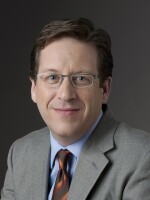RACHEL MARTIN, HOST:
Staying at home has meant a lot of us have been using less energy - not taking cars, not flying on planes. NPR's Jeff Brady looks at whether our new energy-saving habits will stick.
JEFF BRADY, BYLINE: The U.S. is burning a lot less coal, oil and natural gas. And that means carbon dioxide emissions will decrease an extraordinary 11% this year. That's according to an energy information administration forecast. But that may not last long. The agency projects emissions will rise again next year. There's a lot of uncertainty, though, because there are a lot of unknowns that will depend on hundreds of millions of decisions individuals like Lee Carpenter make.
LEE CARPENTER: We've been a one-car household as long as my wife and I have been together. And we've been together for 20 years.
BRADY: Carpenter lives in Philadelphia and tries to make environmentally friendly decisions. She and her wife chose a house close to a rail line so Carpenter could take public transportation to Temple University, where she's a law professor.
CARPENTER: I'm not sure that I'll feel comfortable or safe taking mass transit for the foreseeable future, unfortunately.
BRADY: And the rail line is shut down now anyway. So she's decided to buy a second car. Carpenter figures her carbon footprint is still less than before because the family canceled several airplane trips. Asked how her energy consumption might change as life returns to normal, her guess is as good as yours.
CARPENTER: Right now, I think, I'm doing the same thing that everyone is doing, which is really finding myself with an inability to project out what I'll be doing more than about three weeks into the future.
BRADY: A big part of our energy use is habits - how we commute, when we turn on the heat or air conditioning and how often we go to the store. We're all changing those habits now. Transportation experts like Anurag Komanduri are watching for clues to determine what the broader effects of all those changes will be. He's with the transportation consulting firm Cambridge Systematics and says late summer could be an important period to learn what new habits people might adopt.
ANURAG KOMANDURI: The first metric is when schools open, when children leave the homes or the parents have the option to sending the kids to school. I think that will be a big indicator of the first key point to see what happens later.
BRADY: Already, Americans are driving more as local officials relax stay-at-home orders. Still, changes in how people commute could save energy. Amy Myers Jaffe at the Council on Foreign Relations says drivers waste billions of gallons of gas every year sitting in rush-hour traffic.
AMY MYERS JAFFE: Now that we all learned how to work remotely - I know it's not working for everyone listening. But a few of us who are successful could not commute at rush hour. We could come in at a staggered way and not waste fuel.
BRADY: And Twitter, for one, says some employees are welcome to give up commuting for good and work from home. Jaffe says more people are shopping online and using delivery services now, too. If that sticks, it could lead to lower energy consumption because companies like UPS use computers to determine efficient routes.
JAFFE: In 2017, when UPS put in that system, they saved 100 million miles of vehicle travel.
BRADY: That's 10 million gallons of fuel and the emissions they produce saved. So on energy consumption and fossil fuel emissions, we're in a period of experimentation that could lead to big change. We'll find out in coming months. Jeff Brady, NPR News, Philadelphia. Transcript provided by NPR, Copyright NPR.



